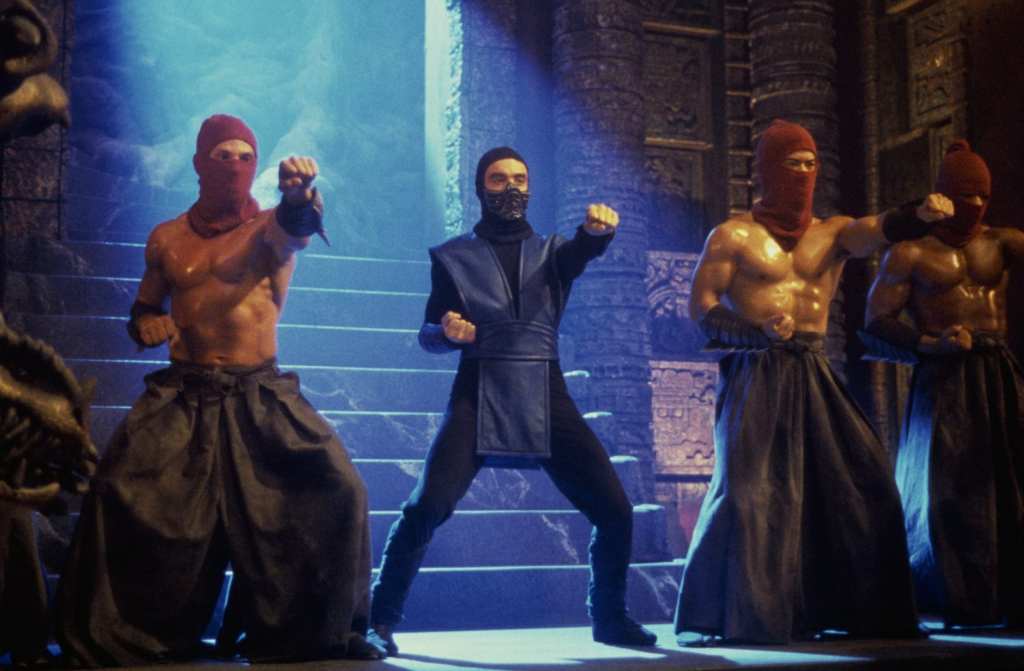#7. There was a lot of boozing after hours.

Photo Credit: New Line Cinema
Ashby remembers:
“You’re shooting in the tropics and the amount of alcohol that was consumed — you’d stand there and people would be sweating and it’d smell like a distillery. You’d be standing next to somebody and they’d just drop down in the dirt. They were out. Everyone is hurting so badly at this point. You just look at the guy laying there and you’d be like, ‘Oh. Cut.’ Nobody even got worked up about it.”
#8. Reshoots led to some of the film’s most memorable scenes.

Photo Credit: New Line Cinema
The original test audiences loved the film except for one thing: they wanted more fights.
Director Paul W.S. Anderson, who played the game a lot when he was waiting for meetings in Hollywood long before he ever landed the gig to helm the film, took the opportunity to give the fans what they wanted:
“We added my favorite fights, which were the Scorpion fight with Johnny Cage and the Reptile fight with Liu Kang. We had a very good stunt coordinator, but as the movie went on, I wanted to embrace more of a Hong Kong, wire-work martial arts feel. … If you look back at Mortal Kombat, it was the first time those big, Chinese wire gags were used in a Western movie. Obviously The Matrix did that to the nth degree several years later. But at the time, Mortal Kombat was very cutting-edge.”
#9. Another one of the film’s most memorable elements also was added late in the process.

Photo Credit: Vernon Yard
According to composer George S. Clinton:
“For the first test screening they had put a temporary score under it that was mainly traditional orchestral action music, and it became clear that the target audience, which was used to hearing techno music blasting during game play, was not happy with that approach. So that gave me the opportunity to come up with an approach I called ‘Techno-Taiko-Orcho.’ My score would have a techno core with a layer of Asian ethnic instruments… surrounded by an orchestra. But not just a regular orchestra, a Testosterone Orchestra. … It was massive. When (the) music supervisors John Houlihan and Sharon Boyle introduced me to guitar wizard Buckethead, I knew he would become a major element in my score as well.”
#10. But, just like the film, record companies weren’t interested in the soundtrack.

Photo Credit: New Line Cinema
Kasanoff remembers the rejections well:
“We got kicked out of two record companies. We had a deal at Sony for a lot of money. In those days you could get a lot of money for a soundtrack — no longer. We walk in and say, here’s our idea. Electronic dance music. … and they kicked us out. Then we go to Virgin Records. We walk in and say, ‘Great idea: electronic dance music.’ And they say, ‘Yeah, how about Janet Jackson?’ By the way, I love Janet Jackson, but we were like, ‘What? For Mortal Kombat?’ We get kicked out. Finally we get no record deal. The studio was great by backing us and letting us do that. We made the MK soundtrack and gave it to this little record company no one had ever heard of and we came out with the first EDM platinum soundtrack.”






